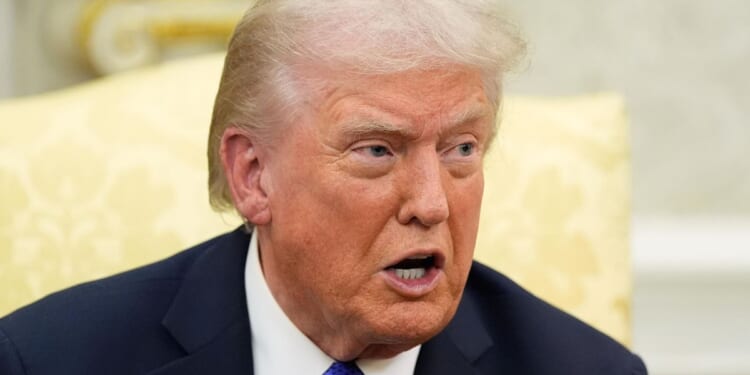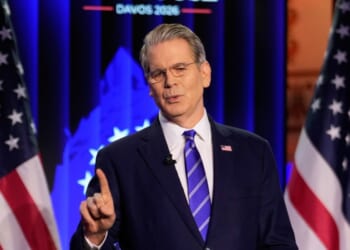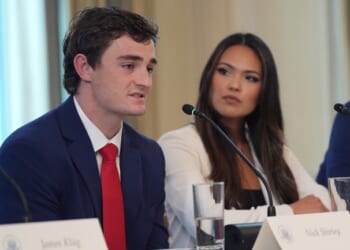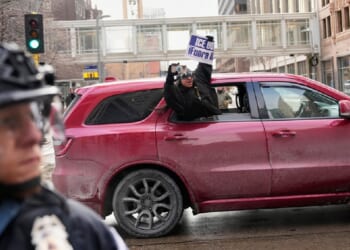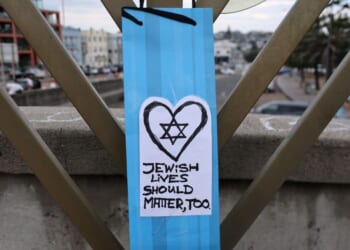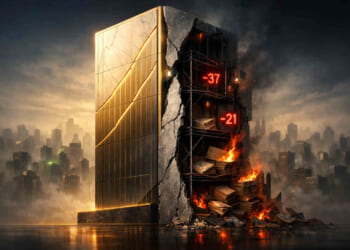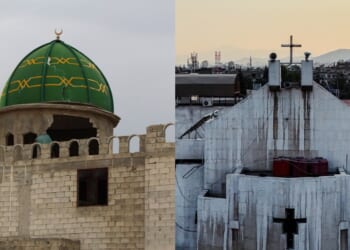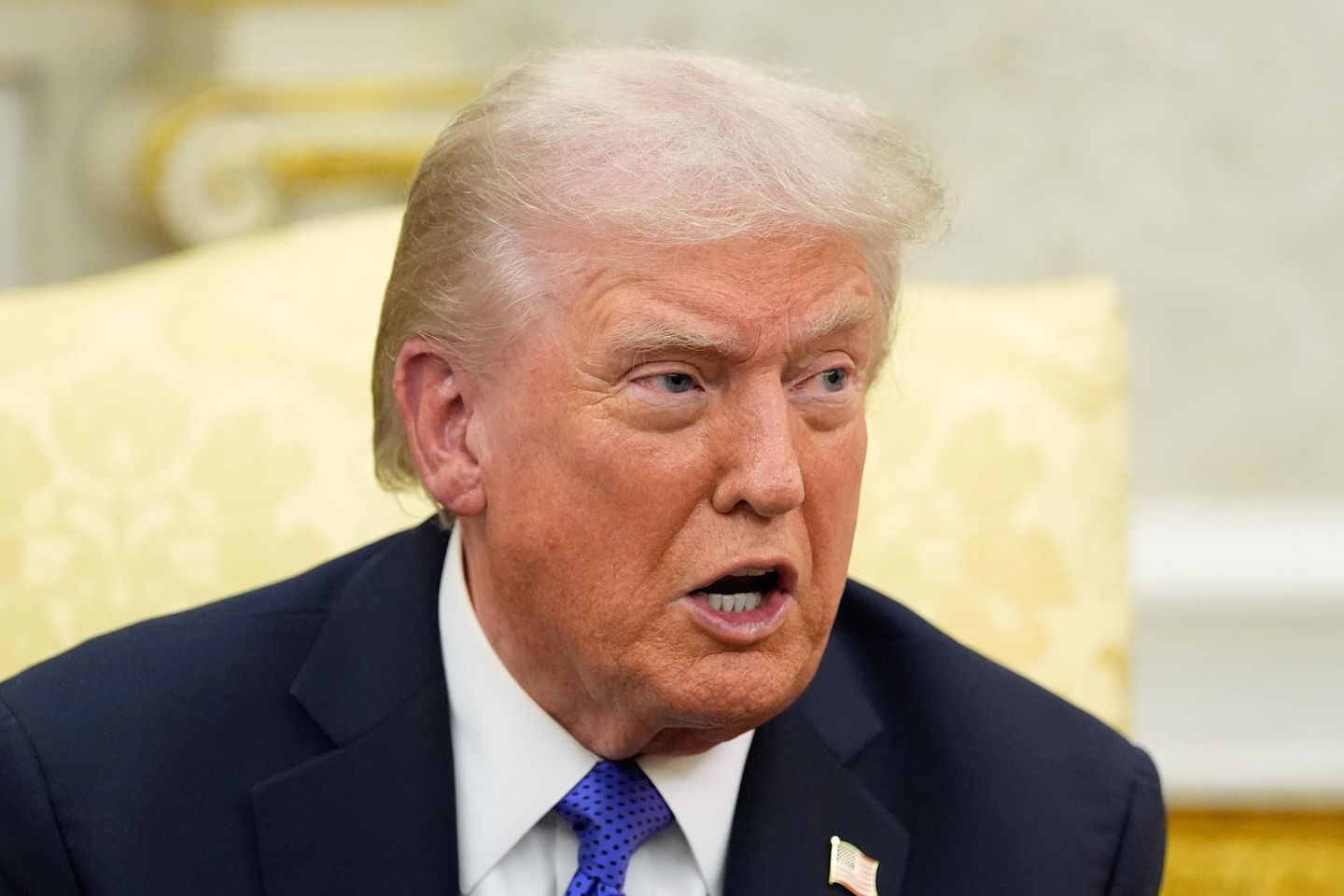
The Trump administration, by its own account, has sunk 10 drug boats and slain 43 crew, and it has yet to offer a firm legal justification.
In the latest strike, overnight Thursday, six people manning a boat in the Caribbean Sea were killed by a U.S. military strike. Defense Secretary Pete Hegseth said the boat was connected to Tren de Aragua, the Venezuela-based gang that President Trump has designated a terrorist organization and has declared to be in “armed conflict” with the U.S.
The United Nations has labeled the U.S. attacks “extrajudicial executions,” and lawmakers from both parties in Washington have asked Mr. Trump to deliver a legal justification.
Last week, one reporter asked whether the president would seek a declaration of war. Mr. Trump rejected the idea.
“I think we’re just going to kill people that are bringing drugs into our country, OK?” the president said. “We’re going to kill them. They’re going to be, like, dead.”
That’s not good enough for his critics, who include a startling array of officials from Republican and Democratic administrations. Legal blogs have churned out dozens of analytical takes saying the president is operating beyond the law.
On Friday, the Pentagon said it had ordered the USS Gerald R. Ford aircraft carrier and its strike group into the Caribbean to “disrupt narcotics trafficking” and “degrade and dismantle” criminal organizations.
Venezuelan leader Nicolas Maduro accused the U.S. of “fabricating war.”
Congressional Democrats, while acknowledging the scourge of drugs, chide Mr. Trump for not revealing more about his operations.
“Congress has never authorized such a use of military force,” Sen. Christopher A. Coons, Connecticut Democrat, told Attorney General Pam Bondi in a hearing this month.
The Justice Department is rumored to have completed a legal justification, but it has not been released, and Ms. Bondi said she wouldn’t tell Mr. Coons what it said.
“I’m not going to discuss any legal advice that my department may or may not have given or issued at the direction of the president on this matter,” she said, though she called Mr. Maduro a “narco-terrorist.”
In a letter Friday, the top Democrats on the House and Senate intelligence committees said they couldn’t even find out what sorts of intelligence assets the administration is using to determine that the boats are running drugs on behalf of Tren de Aragua.
“Good intelligence is critical to ensure that these operations do not kill innocent people with no connection to the drug trade. There have already been public reports that these strikes have killed individuals who were not affiliated with any drug trafficking organization,” said Sen. Mark R. Warner of Virginia and Rep. James Himes of Connecticut.
The strikes on drug boats stand at the crossroads of several crucial yet tricky areas for the administration.
Mr. Trump is on a record pace in declaring foreign terrorist organizations: 19 since Jan. 20.
The groups are designated under the 1996 Antiterrorism and Effective Death Penalty Act. President Clinton’s State Department started the list with 30 designations.
President George W. Bush designated 18 over his eight years in office, President Obama designated 25, Mr. Trump designated 11 in his first term, and President Biden designated four.
Mr. Trump has also expanded the scope for the designation beyond radical ideological groups, such as Hamas, al Qaeda and the Continuity Irish Republican Army, to name the Mexican smuggling cartels and international street gangs such as MS-13, 18th Street and Tren de Aragua.
Mr. Trump said Tren de Aragua is engaged in an “invasion” or “incursion” of the U.S. He has flexed previously untested presidential powers to repel the organization.
He has long vowed a war on drug smugglers and has been itching to get the U.S. military more involved in what had been considered a law enforcement matter.
The first strike was announced Sept. 2. A U.S. military missile strike took out a boat that left Venezuela and was headed for Trinidad and Tobago. Mr. Trump said 11 people crewing the boat were slain.
Strikes followed on Sept. 15 and Sept. 19. Seven more boats have been struck this month.
On Oct. 16, the sixth boat strike killed two but left two survivors.
American officials had to quickly decide what to do with them. Options such as prosecuting the crew members or holding them at Guantanamo Bay as enemy combatants were discussed.
In the end, the surviving passengers were repatriated to their own countries.
CNN tracked down the family of one survivor, Andres Fernando Tufino Chila. His sister said she last spoke with him a year ago when he told her he would be a fisherman.
“He’s not a criminal,” said the woman, who lives in Ecuador.
Yet someone with the same name and age pleaded guilty in U.S. federal court in 2021 to operating a drug smuggling vessel running from Ecuador to Mexico. He admitted to carrying more than 2,360 pounds of cocaine in the false bottom of a go-fast boat.
The defendant was sentenced to 60 months in prison, though Bureau of Prisons records say he was released in January 2024.
The other survivor was from Colombia.
Those who have criticized the attacks have faced retribution.
Colombian President Gustavo Petro revealed that some of his citizens had been killed in the attacks, which he said were illegal. He said the boat crews weren’t traffickers but only worked for the traffickers.
“Killing the business workers is easy,” he told CBS News. “But if you want to be effective, you have to capture the bosses of the business.”
He said bigger shipments would be better targets.
Mr. Trump has accused Mr. Petro of associating with drug traffickers. On Friday, he slapped sanctions on the Colombian president and members of his family and inner circle, restricting their ability to conduct business with U.S. institutions.

